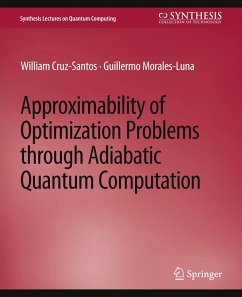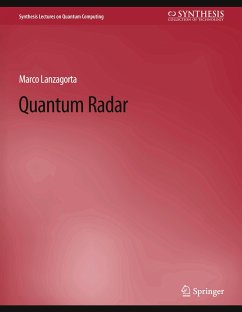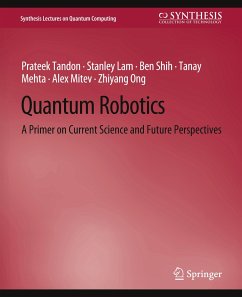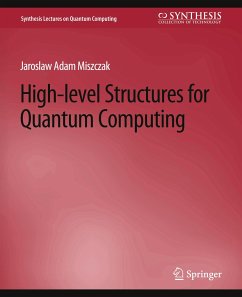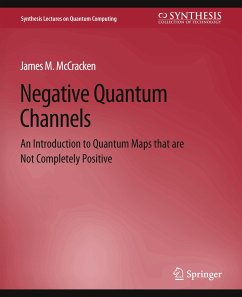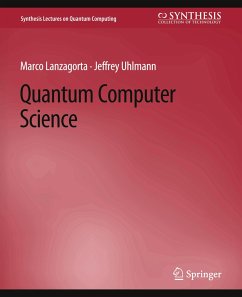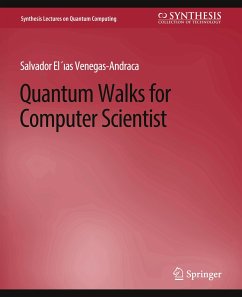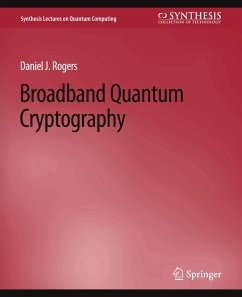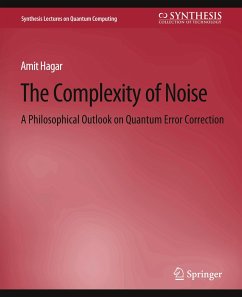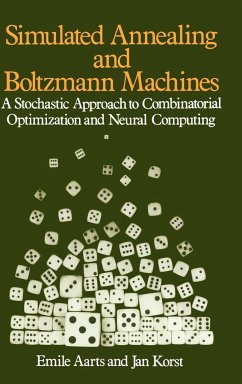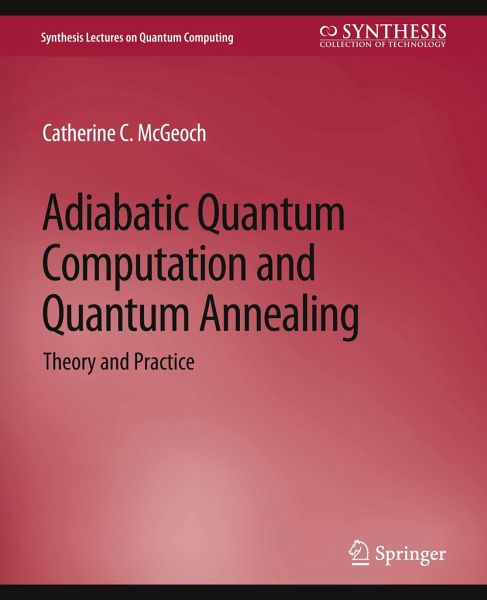
Adiabatic Quantum Computation and Quantum Annealing
Theory and Practice

PAYBACK Punkte
0 °P sammeln!
Adiabatic quantum computation (AQC) is an alternative to the better-known gate model of quantum computation. The two models are polynomially equivalent, but otherwise quite dissimilar: one property that distinguishes AQC from the gate model is its analog nature. Quantum annealing (QA) describes a type of heuristic search algorithm that can be implemented to run in the ``native instruction set'' of an AQC platform. D-Wave Systems Inc. manufactures {quantum annealing processor chips} that exploit quantum properties to realize QA computations in hardware. The chips form the centerpiece of a novel...
Adiabatic quantum computation (AQC) is an alternative to the better-known gate model of quantum computation. The two models are polynomially equivalent, but otherwise quite dissimilar: one property that distinguishes AQC from the gate model is its analog nature. Quantum annealing (QA) describes a type of heuristic search algorithm that can be implemented to run in the ``native instruction set'' of an AQC platform. D-Wave Systems Inc. manufactures {quantum annealing processor chips} that exploit quantum properties to realize QA computations in hardware. The chips form the centerpiece of a novel computing platform designed to solve NP-hard optimization problems. Starting with a 16-qubit prototype announced in 2007, the company has launched and sold increasingly larger models: the 128-qubit D-Wave One system was announced in 2010 and the 512-qubit D-Wave Two system arrived on the scene in 2013. A 1,000-qubit model is expected to be available in 2014. This monograph presents an introductory overview of this unusual and rapidly developing approach to computation. We start with a survey of basic principles of quantum computation and what is known about the AQC model and the QA algorithm paradigm. Next we review the D-Wave technology stack and discuss some challenges to building and using quantum computing systems at a commercial scale. The last chapter reviews some experimental efforts to understand the properties and capabilities of these unusual platforms. The discussion throughout is aimed at an audience of computer scientists with little background in quantum computation or in physics.Table of Contents: Acknowledgments / Introduction / Adiabatic Quantum Computation / Quantum Annealing / The D-Wave Platform / Computational Experience / Bibliography / Author's Biography



